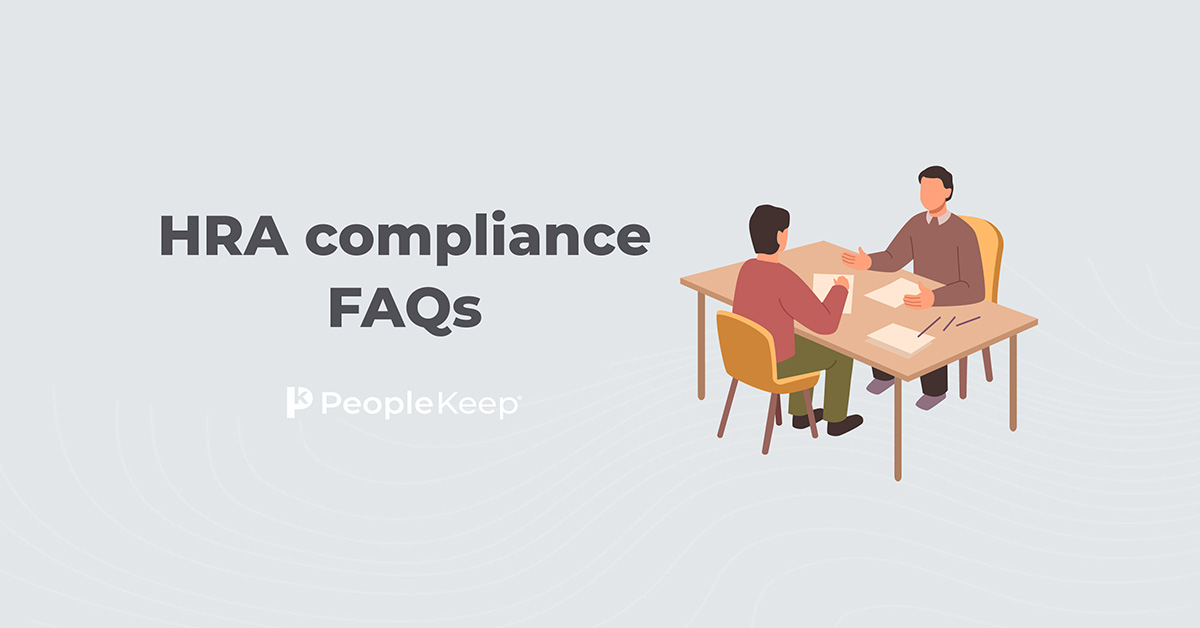HRA Plan Requirements
By Christina Merhar on April 19, 2013 at 3:34 PM
Health Reimbursement Arrangements (HRAs) are Section 105 health care plans paid for by an employer to reimburse the medical expenses of employees, their spouses, and dependents. HRAs are designed to give employees more choice and greater control over their health care coverage, and save money for both the employer and employees. Health Reimbursement Arrangements are commonly referred to (incorrectly) as Health Reimbursement Accounts.
HRA Plan Rules
The Internal Revenue Service (IRS) defines the rules and guidelines for an HRA in IRS Notice 2002-45. Under these rules:
-
An HRA is paid for solely by the employer and cannot be funded through employee salary deduction.
-
An HRA may only reimburse employees during their effective dates in the HRA plan.
-
An HRA can reimburse for eligible medical expenses and health insurance premium amounts, as defined in IRC Section 213(d)(1)(D).
-
Each eligible medical expense must be substantiated.
-
Reimbursements are generally excludable from the employee's gross income under Internal Revenue Code Sections 106 and 105.
HRA Plan Requirements: Compliance
To offer an HRA, a company is required to be compliant in the following areas:
1. IRS Compliance: The IRS requires that a formal HRA (with IRS-compliant HRA Plan Documents) be established in order for reimbursements to be tax-free for the employer, and employees.
2. Federal Compliance: A company must have measures and safeguards in place to meet HIPAA and ERISA regulations.
-
HIPAA (Medical Privacy): An HRA is a self-funded health plan and governed by the HIPAA Privacy Rules. In order to administer an HRA, the entity processing the claims receives protected health information (PHI) which is protected by HIPAA. Employers that do not comply can be subject to civil penalties of up to $100 per violation. Learn more about HIPAA Privacy for HRAs.
-
ERISA: The U.S. federal government has specific regulations that employers must comply with in order to reimburse employees for individual health insurance premiums without triggering ERISA plan status for the individual health insurance policies. Learn more about ERISA-compliant individual policy reimbursement.
3. ACA/Health Care Reform: The Affordable Care Act (ACA) introduced new requirements for HRAs including how benefit information is presented to employees (Summary of Benefits & Coverage, or SBC), new reporting forms (720/5500) and new plan design requirements (ex: annual limits). The HRA plan must have the appropriate documents, data and plan settings in place to be ACA compliant.
HRA Plan Requirements: Plan Documents
HRA Plan Documents must be in place and comply with the above IRS and ERISA rules. Since an HRA is subject to ERISA, a legal HRA plan document must be provided in writing. A Summary of Benefits is not considered an HRA Plan Document or HRA Summary Plan Description (SPD). If an HRA exists without a written HRA Plan Document the HRA is out of compliance.
An HRA Plan Document should contain the following:
-
Name of the HRA Plan Document Administrator
-
Designation of any Named Fiduciaries other than the HRA Plan Administrator under the claims procedure for deciding benefit appeals
-
A description of the HRA benefits provided
-
The standard of review for HRA benefit decisions
-
Eligibility criteria (e.g., classes of employees, waiting period for new hires, and hours worked per week)
-
The effective date of participation (e.g., next day or first of month following satisfaction of the HRA Plan Document eligibility waiting period)
-
HRA Plan Sponsor's amendment and termination rights and procedures, and what happens to HRA Plan assets, if any, in the event of HRA Plan termination
-
Rules restricting and regulating the use of Protected Health Information (PHI), if Plan Sponsor uses PHI
-
Coordination of Benefits provisions
-
Procedures for allocating and designating administrative duties to an HRA TPA or committee
-
How the HRA plan is funded
-
Information regarding COBRA, HIPAA, and other federal mandates
Check out more resources
See these related articles

HRA compliance FAQs
Need answers to your HRA compliance questions? Look no further! This comprehensive FAQ guide has everything you need to know about HRA compliance.

How to Explain an HRA to Your Nonprofit's Board of Directors
Learn 6 tips on explaining an HRA and health insurance reimbursement plan to your nonprofit board of directors.

HRA administration: What features to expect from your provider
Discover the key features of HRA administration. Learn what to expect from your provider to ensure smooth setup, compliance, and employee support.


